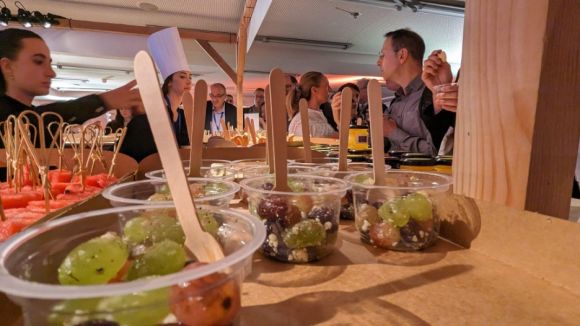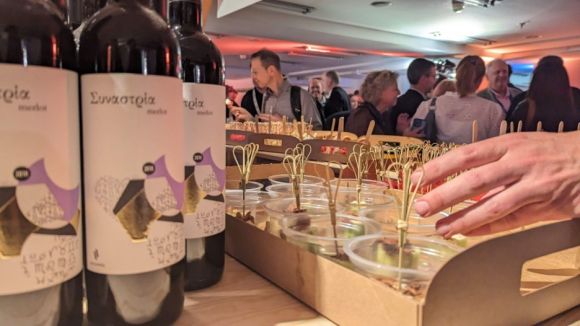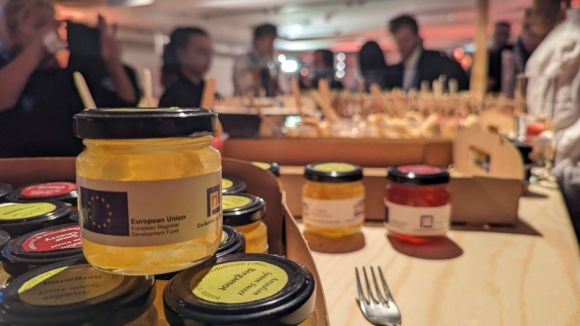
During the European Week of Regions and Cities 2023, the participants had a taste of Peloponnese with food grown in the region and century-old recipes. From gliko tou koutaliou (spoon sweet, traditionally served as an appetiser to guests), to graviera cheese, to a combination of fetta and watermelon—a popular refreshing summer snack— the region presented its rich cuisine and locally produced food. Participants also had the chance to taste Sinastria and Nemea wine, the famous red, white, and rose wine from the Peloponnese region.
Agriculture is a big part of the region’s development
The diverse landscape and fertile land make the region one of the leading agricultural producers and exporters of Greece, holding a 35 per cent share of olive production and 32 per cent of vineyards in Greece, making it one of the most well-known regions in Greece for olive and wine production. The EU continues to support the agricultural development of the region, promote innovation within the industry, and ensure the industry does not harm the environment.

There is a national coordination of the agricultural fund which supports all the chain of production, said Antonios Psarakis, Director of the Managing Authority of Programme Peloponnese, during the interview. While the coordination first aims to promote that these food products are produced locally, it also aims to increase production by "providing the raw materials to our hotels and tourist organisations and exported in Europe as required," continued Psarakis.
EU’s continuous support for the region

The managing authority of the Peloponnese region fosters cooperation and promotion of urban development and sustainability among the cities and prefectures of the region. The region is supported by the EU through different funds. The European Regional Development Fund focuses on supporting infrastructure, business competitiveness, and environmental protection. There are also social funds which aim to support public structures, social inclusion, and tackle unemployment. Lastly, the region is supported also with cohesion funds which mainly focus on solid waste treatment and improving the sewage network. "This program is 400 million euros, and the contribution from the European Union is 85 per cent of this amount. So it's a very promising funding for the region as a whole,” said Psorakis.
Tackling the brain drain
As many regions throughout Europe, the Peloponnese also are experiencing a brain drain and an ageing population as most young people move to big cities to seek better opportunities. To tackle such a problem, the region fosters collaboration between academia and entrepreneurs to retain young people. Yet, demographic change is still a problem. “Nowadays, there is a great call from the European Union for regions with demographic problems to apply for support, and we are going to do this. We will see the results in two to three years,” said Psorakis.
By Rina Zhubi



